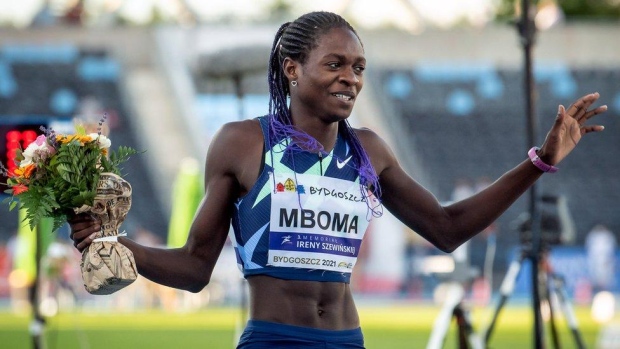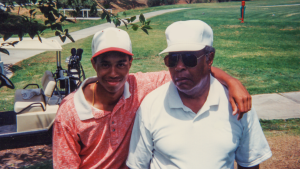Jul 5, 2021
Namibian female runners ineligible to compete in 400m due to natural high testosterone levels
Namibian runners Christine Mboma and Beatrice Masilingi have been disqualified from competing in the women’s 400 metres at the Tokyo Olympics due to “a natural high testosterone level.”

Namibian runners Christine Mboma and Beatrice Masilingi have been disqualified from competing in the women’s 400 metres at the Tokyo Olympics due to “a natural high testosterone level.”
On Wednesday, Mboma set a 400m U-20 record with a time of 48.54 seconds. Masilingi ran 49.53 seconds at a meet in April which stands as the third fastest time in 2021.
This prompted World Athletics, the international governing body of athletics, to perform medical assessments. The 18-year old sprinters were tested at their training camp in Italy and results revealed they both had natural high testosterone levels.
“According to the rules of World Athletics, this means that they are not eligible to participate in events from 400-meter to 1600-meter,” the Namibia National Olympic Committee said in a statement. “It is important to understand that both our athletes were not aware of this condition neither did any family member, their coach or the NNOC-CGA [Namibia Olympic Committee] were aware of it.
This is the same rule that has stopped Burundi’s Francine Niyonsaba and Kenya’s Margaret Wambui from competing in the 800m race, and South Africa’s Caster Semeyena from competing in the Olympics. Semeyena, a two-time Olympic champion, has lost two appeals and is waiting for a third.
In 2019, World Athletics implemented a rule that required female athlete’s testosterone levels to be under five nanomoles per liter to compete in 400 metre to one mile races. According to World Athletics, no female athlete would be over the cap unless they had differences of sex development (DSD) or a tumor.
If an athlete had high testosterone levels, they could either change their distance or take testosterone-suppressing medication for six months and stay under the cap while competing.
The Namibia National Olympic Committee said they’re in close contact with World Athletics and will analyse all information and apply it in the best interest of both athletes.
Mboma and Masilingi will be allowed to compete in both 100 and 200 metre races.
On Wednesday, Mboma set a 400m U-20 record with a time of 48.54 seconds. Masilingi ran 49.53 seconds at a meet in April which stands as the third fastest time in 2021.
This prompted World Athletics, the international governing body of athletics, to perform medical assessments. The 18-year old sprinters were tested at their training camp in Italy and results revealed they both had natural high testosterone levels.
“According to the rules of World Athletics, this means that they are not eligible to participate in events from 400-meter to 1600-meter,” the Namibia National Olympic Committee said in a statement. “It is important to understand that both our athletes were not aware of this condition neither did any family member, their coach or the NNOC-CGA [Namibia Olympic Committee] were aware of it.
This is the same rule that has stopped Burundi’s Francine Niyonsaba and Kenya’s Margaret Wambui from competing in the 800m race, and South Africa’s Caster Semeyena from competing in the Olympics. Semeyena, a two-time Olympic champion, has lost two appeals and is waiting for a third.
In 2019, World Athletics implemented a rule that required female athlete’s testosterone levels to be under five nanomoles per liter to compete in 400 metre to one mile races. According to World Athletics, no female athlete would be over the cap unless they had differences of sex development (DSD) or a tumor.
If an athlete had high testosterone levels, they could either change their distance or take testosterone-suppressing medication for six months and stay under the cap while competing.
The Namibia National Olympic Committee said they’re in close contact with World Athletics and will analyse all information and apply it in the best interest of both athletes.
Mboma and Masilingi will be allowed to compete in both 100 and 200 metre races.











